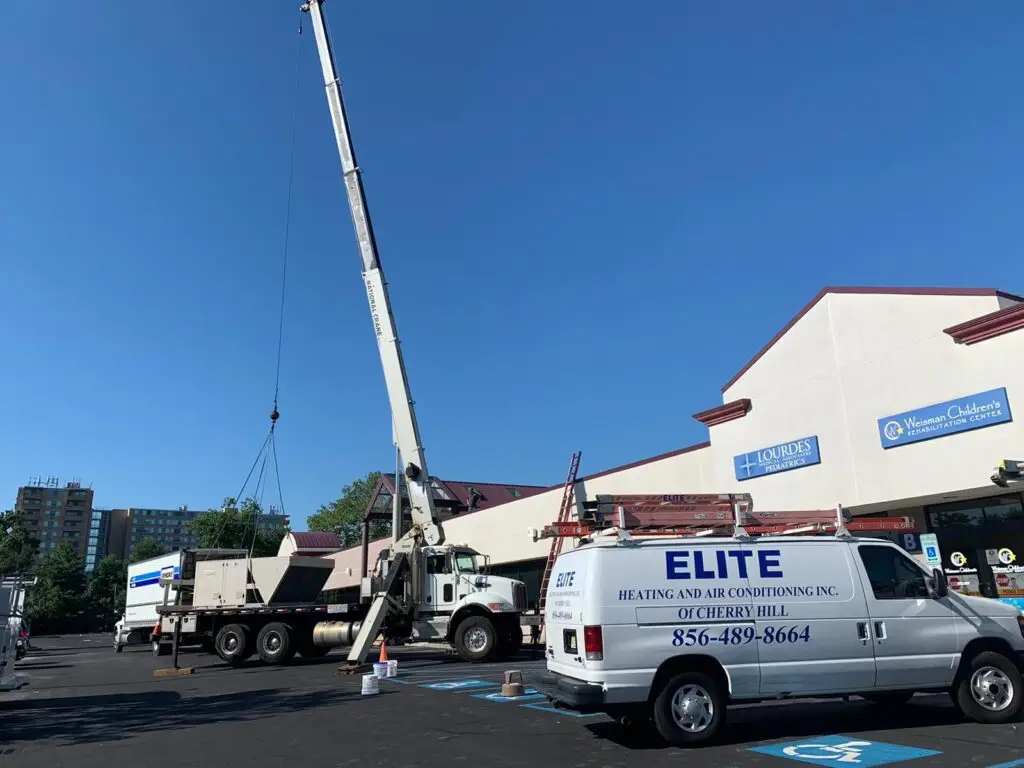Strange Noises or Smells Coming from Your Commercial AC? Here’s What They Mean
When a commercial AC system starts making strange noises or emitting unusual smells, it’s more than just an inconvenience—it’s a sign that something may be wrong. From loose components to potential mold growth, here’s what different sounds and smells can mean, and what you can do to resolve them before they impact comfort and safety in your building.
1. Rattling, Banging, or Clanking Sounds
Rattling or banging sounds are typically caused by loose parts within the AC unit. Over time, commercial HVAC systems experience wear and tear, which can lead to parts coming loose or wearing out.
- What to Listen For: Rattling sounds often indicate loose bolts or screws, while banging or clanking can signal that a component has broken or shifted out of place.
- Professional Solution: These issues require an HVAC technician to inspect the system. They’ll tighten or replace any loose or damaged components to prevent further wear. Regular inspections are key to catching loose parts early.
2. Hissing or Whistling Sounds
A hissing or whistling sound is often linked to airflow or refrigerant issues. In commercial settings, where AC systems are larger and more complex, these sounds usually indicate a refrigerant leak or pressure imbalance within the ductwork.
- What to Listen For: Hissing near the indoor unit may point to a refrigerant leak, while whistling in the ducts suggests airflow issues like blockages or leaks in the duct system.
- Pro Tip: Contact a certified HVAC professional immediately if you suspect a refrigerant leak, as refrigerant handling is regulated. For duct issues, they can inspect and repair any blockages or leaks, restoring smooth airflow.
3. Grinding or Screeching Sounds
Grinding or screeching sounds typically come from the fan motor or blower assembly. In large commercial units, fan motors are essential for moving air through extensive ductwork, and any motor malfunction can significantly affect system efficiency.
- What to Listen For: Grinding sounds usually mean that motor bearings are worn, while screeching can indicate a misalignment or lack of lubrication in the blower assembly.
- Professional Solution: An HVAC technician can lubricate, realign, or replace faulty motor parts to prevent further damage and reduce noise. Regular maintenance can extend the life of motor components and improve system efficiency.
What Do Those Smells Mean?
| Smell | Likely Cause | Recommended Action |
|---|---|---|
| Musty or Moldy Odor | Potential mold growth in ducts or evaporator coils | Contact an HVAC professional to inspect and clean the system to prevent air quality issues. |
| Burning Smell | Overheating motor or electrical component | Shut off the system and call an HVAC technician immediately to inspect for electrical hazards. |
| Rotten Egg Smell | Could indicate a gas leak if using a gas-based system | If safe to do so, evacuate the area and contact emergency services and an HVAC technician. |
4. Musty or Moldy Odor
A musty smell is often associated with mold or mildew within the AC unit or ductwork. Commercial AC systems are prone to condensation, and if moisture is not properly managed, it can lead to mold growth, which impacts air quality and can trigger health concerns.
- What to Smell For: Musty or earthy odors suggest moisture buildup, often within the evaporator coils or ducts.
- Quick Fix: Run a dehumidifier to control moisture levels, but a professional cleaning may be necessary. Technicians can clean and disinfect the system to eliminate mold and prevent future growth.
5. Burning or Electrical Smell
A burning smell from the AC unit usually indicates an overheating motor or a problem with an electrical component. In commercial systems, this may be due to worn-out belts, wiring issues, or dust buildup around electrical components.
- What to Smell For: The smell of burning or overheating wires can vary from a faint smell to a strong, sharp odor.
- Professional Solution: Turn off the system immediately and call an HVAC technician to inspect for potential fire hazards or equipment damage. Regular maintenance and prompt repairs are essential for preventing electrical problems.
6. Rotten Egg Smell
A rotten egg smell may indicate a gas leak in systems that utilize gas heating. While rare in cooling systems, it’s a serious issue that demands immediate attention, especially in commercial spaces where safety protocols are critical.
- What to Do: If you smell gas, evacuate the area if safe to do so, and contact emergency services along with an HVAC technician. Gas leaks are hazardous and require urgent professional handling.
Frequently Asked Questions
Sudden loud noises often signal mechanical issues like loose parts, motor problems, or airflow restrictions. If ignored, these issues can lead to further damage, so it’s best to have a professional inspect the system.
Yes, smells like mold or burning odors can indicate mold growth or electrical issues, which may affect indoor air quality and safety. Regular cleaning and prompt repair help ensure a safe and comfortable environment.
Twice a year is ideal for commercial AC maintenance, as it helps catch small issues before they become larger problems, ensuring your system runs quietly and efficiently.
In Summary
Strange sounds or smells from your commercial AC are often the first signs of mechanical or airflow problems. Addressing these issues early helps prevent costly repairs, improves indoor air quality, and ensures a comfortable environment for employees and clients alike. For prompt and professional repair of noisy or smelly HVAC systems, contact Elite Heating and Air Conditioning. We specialize in diagnosing and resolving commercial AC issues to keep your business running smoothly.

- AC troubleshooting, commercial AC noise, HVAC repair, HVAC smells


